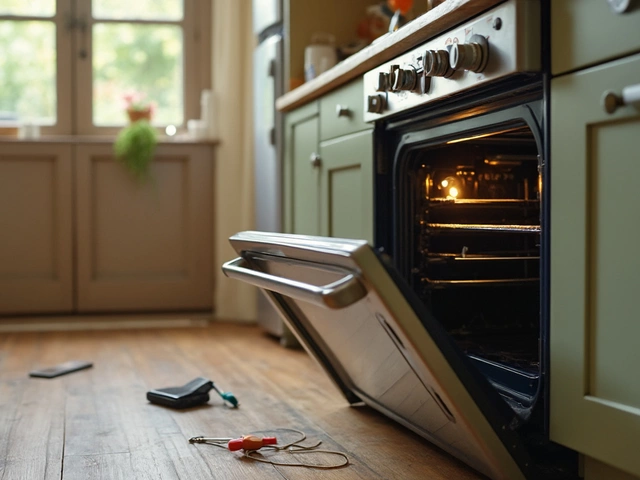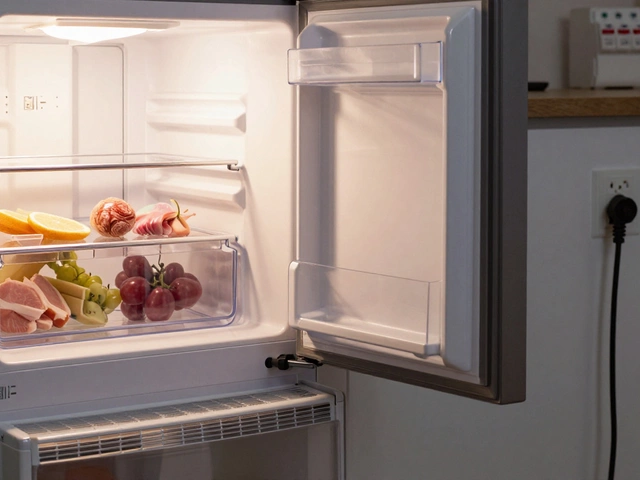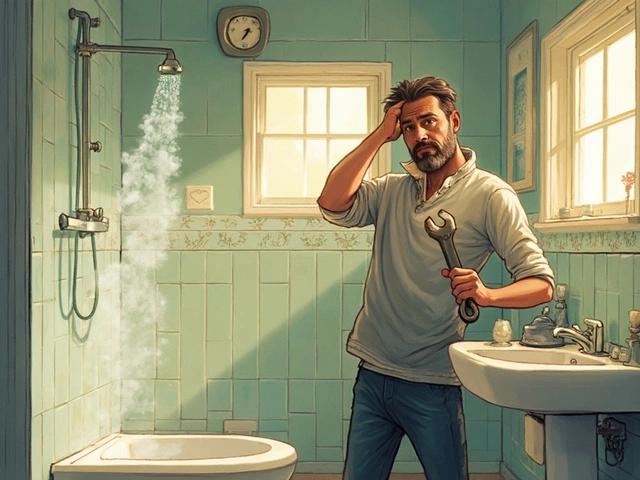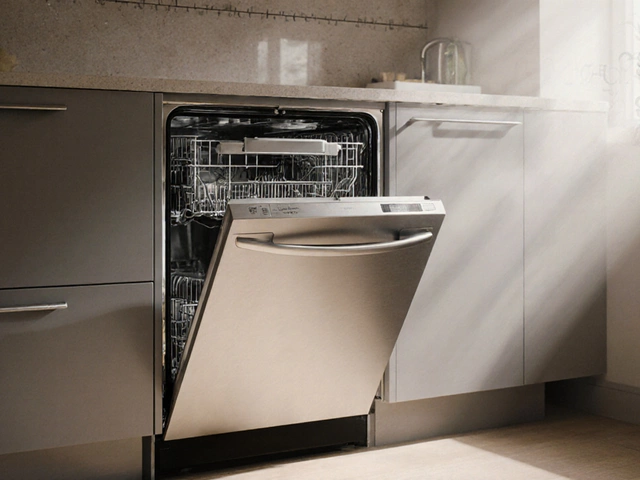An electric oven is a staple in many households, offering convenience and versatility. However, like any appliance, it can occasionally encounter issues that disrupt its performance. Whether it's taking longer to heat, producing unusual sounds, or cooking food unevenly, recognizing these symptoms early can prevent more extensive damage and ensure your meals continue to cook perfectly.
This article delves into the common signs of electric oven problems, equipping you with the knowledge to troubleshoot effectively. By understanding the potential causes and solutions, you can decide whether to attempt a DIY fix or call in the experts. Additionally, we'll share tips on maintaining your oven to prevent future issues and keep it running efficiently. Let’s embark on this journey to make your oven troubles a thing of the past.
- Recognizing Common Symptoms
- Basic Troubleshooting Techniques
- Safety Precautions
- When to Call a Professional
- The Importance of Regular Maintenance
- Energy Efficiency and Cost-Saving Tips
Recognizing Common Symptoms
Every electric oven enthusiast knows the frustration when there’s inconsistency in cooking or baking results. The key to mastering these mishaps lies in understanding and identifying symptoms of potential issues early on. For starters, one of the most widespread symptoms is uneven heating. Imagine you’ve prepared a delectable cake mix, only to find one side delightfully baked while the other remains a soggy mess. This can stem from a malfunctioning heating element. Ovens typically have two of these elements – one on the top and one at the bottom. If either of these fails to heat effectively, the result can be uneven baking or roasting experiences.
Strange noises are other tell-tale signs that shouldn’t be overlooked. Initially, you might mistake them for harmless hums, but persistent unusual sounds, particularly those that clang, bang, or rattle, could hint at deeper mechanical issues, possibly involving the fan motor or loose components. Addressing these might require inspecting the oven thoroughly, ensuring every screw and bolt is tightly secured. Speaking of surprises, let’s not forget those times when the oven takes an eternity to heat up. Such lag in response could be associated with a failing temperature sensor or an internal wiring problem, affecting the oven's ability to pick up or maintain the desired heat level.
An oven door that doesn’t close properly is just as troubling as any electrical issue. It might come across as a minor inconvenience initially, but an improperly sealed door can lead to significant heat loss, severely affecting cooking times and energy efficiency. Sometimes, the problem lies with the door hinges or the gasket that runs along the edge of the door. In these cases, replacement or proper lubrication might be necessary to restore full functionality. Let’s also touch upon burned-out bulbs, often overlooked, yet integral in illuminating the oven’s interior during operation. While replacing a bulb is a relatively straightforward task, it’s crucial not to forget to do so, as it aids visibility and prevents unnecessary energy consumption by keeping the oven door open during cooking checks.
A survey conducted by Appliance Repair Magazine indicates that 35% of oven-related issues stem from neglecting these common symptoms. Recognizing these early signs and understanding their underlying causes can save both time and money further down the line. From uneven cooking and mysterious noises to faulty doors and sensors, tackling these symptoms head-on requires insight and prompt action. As famed chef Julia Child once said about cooking, and it equally applies here,
"The only real stumbling block is fear of failure."Knowing when to call in a professional or when to roll up your sleeves can make all the difference in keeping your electric oven in working order.
Basic Troubleshooting Techniques
When your electric oven is not behaving as it should, it can throw off your entire culinary schedule. Fortunately, a few basic troubleshooting techniques can help diagnose and sometimes even fix common issues without the need for professional intervention. One of the first steps in troubleshooting is to ensure that the oven is properly connected to its power source. A loose plug or a flipped breaker can be the culprit more often than one might think. Occasionally, the solution is as simple as ensuring that the appliance is getting power, which can prevent unnecessary fretting.
If the power supply isn’t the issue, diving deeper into potential causes can reveal more clues. For instance, when facing an oven that doesn’t heat up to the desired temperature, checking the oven’s thermostat could be insightful. A miscalibrated thermostat means your oven may either overcook or undercook dishes. You can test the oven’s temperature by using an oven thermometer to see if there’s a discrepancy between the set temperature and the actual temperature inside. If you consistently notice a difference, it might be time to replace the thermostat. Sometimes, the solution involves a manual recalibration, often detailed in your oven's user manual, which guides you through adjusting the thermostat.
Another common challenge lies with ovens that produce unevenly cooked meals, which can signify issues with the heating elements either on the top or the bottom of the appliance. For electric ovens, these heating elements should glow a bright red when in use. If they appear dim or do not heat up at all, it could indicate a need for replacement. To check, turn off the oven and examine both the broil and bake elements for visible breaks or scorch marks, which are signs that they aren’t functioning correctly. As with any electrical component, ensure the oven is unplugged before poking around to prevent shocks.
Many oven issues stem from malfunctioning sensors or controls that direct the appliance’s operations. A multimeter can be a handy tool to test these parts if you're comfortable with basic electrical diagnostics. However, it’s essential to be cautious and maybe call upon an expert if you’re unsure—dealing with electrical appliances always bears some risk. As John Smith, an appliance repair expert, wisely advises,
"Understanding your appliance doesn't just make you a handy cook; it keeps you safe."His words remind us that safety precautions shouldn't be overlooked when energizing our problem-solving spirits.
For those who are more advanced in handling appliance repairs, inspecting the oven’s wiring harness for signs of wear and tear could be another useful step. Often, burnt or frayed wires are a precursor to larger failures, and addressing them early on might save both time and money. Given the electric oven's intricate design and reliance on functional wiring, identifying these types of problems can occasionally provide significant insight into other operational concerns.
Lastly, reviewing the oven’s settings and controls for any accidental adjustments is a good practice. It might seem trivial, but sometimes, accidentally engaging the delay start feature or child lock can prevent the oven from functioning as expected. Double-checking these settings ensures that user error isn’t to blame and helps in eliminating unnecessary repairs from your to-do list.
Safety Precautions
When tackling the task of troubleshooting or repairing your electric oven, the highest priority should always be safety. Ovens operate using high voltage electricity, and a small mishap can lead to severe injuries or damage. So, before diving into any repair work, make sure the oven is completely unplugged. Even if it seems like a no-brainer, double-checking can never hurt when it comes to your well-being. Staying cautious at all times means not just protecting yourself but also safeguarding your appliance from avoidable damage.
Begin with a visual inspection. Look for any visible signs of damage or wear, such as frayed wires or scorch marks, which can indicate where a problem lies. Always use the right tools for any repair task. Not only do they make the task easier, but they also minimize the risk of accidental harm. Insulated tools are especially beneficial as they protect against electrical shocks.
For those attempting a DIY approach, investing in basic safety equipment is essential. A pair of insulated gloves and goggles can provide protection against unforeseen sparks or debris. Moreover, never attempt to work on an appliance if you're feeling unsure. It's always better to consult or call a professional if you have any reservations. Remember, no repair is worth jeopardizing your safety.
Understanding the specifics of your oven model can also be a huge advantage. Most manufacturers provide detailed manuals that contain safety instructions tailored for their products. These guides often have troubleshooting tips specific to the model, saving you unnecessary guesswork. For example, some modern ovens have built-in safety features that prevent operation if there's a potential risk.
"Safety first has been my guiding principle, and it's essential when dealing with electrical appliances," notes a renowned appliance repair expert, James Phillip, in his guide on household appliance maintenance.
It's worth noting that electrical safety standards and practices can vary based on region. Becoming familiar with your local guidelines can ensure you're not missing any crucial precautionary measures. Many countries have dedicated consumer advice platforms where guidelines and safety tips are regularly updated, making them useful resources for homeowners.
If you're keen on measuring and testing components, ensure you have a reliable multimeter. This tool can help identify issues with the electrical components, such as burnt-out fuses or malfunctioning thermostats, without needing to disassemble the entire oven. While technology has made modern ovens relatively safer, there's no substitute for human vigilance. By maintaining a proactive approach to safety, not only can you tackle issues efficiently, but you can also extend the lifespan of your trusty kitchen companion.
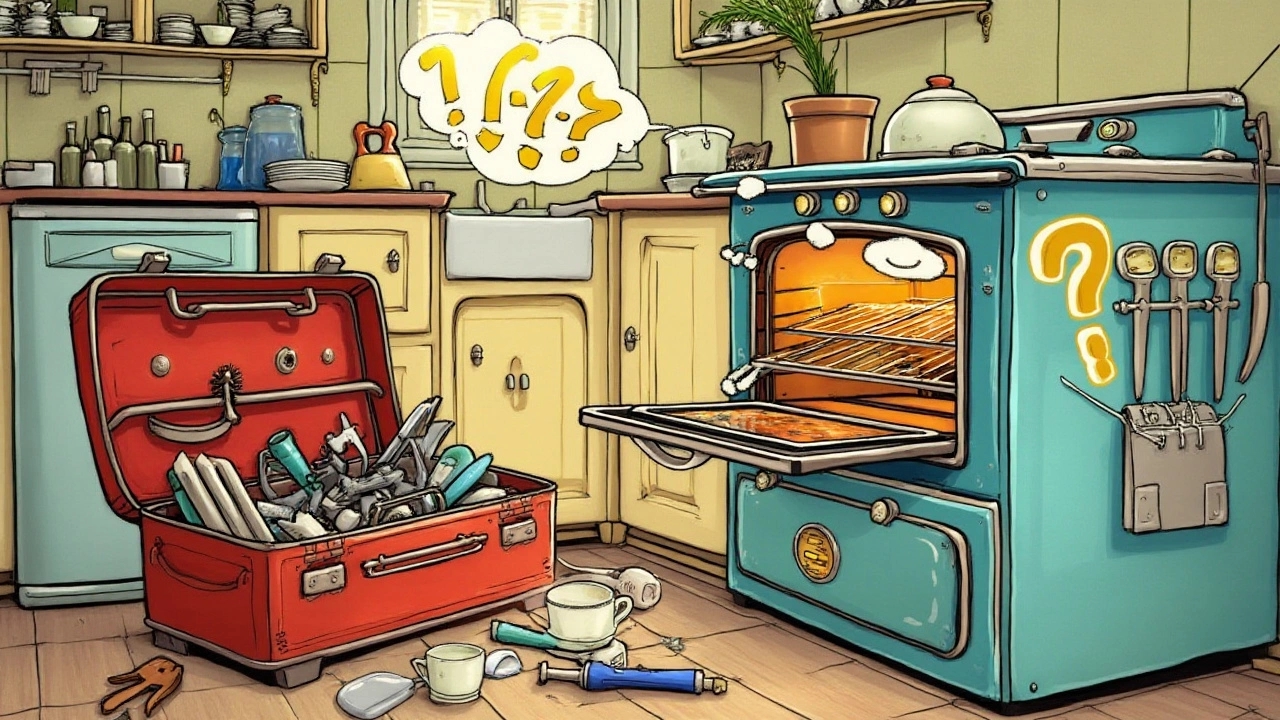
When to Call a Professional
Sometimes, no matter how mechanically inclined you are, a persistently malfunctioning electric oven could necessitate the expertise of a professional. Understanding when to call for help is crucial not only for the longevity of your appliance but also for your safety. Issues such as a consistently tripping circuit breaker, unexplained electrical sparks, or a malfunctioning oven door that fails to latch securely can pose significant risks. In such scenarios, it's not just about fixing the problem, but avoiding potential hazards, including electrical fires or shocks. An expert can quickly diagnose these complex issues and provide solutions that are beyond basic troubleshooting capabilities. If you consistently struggle with a flickering control panel or find that your settings continuously reset, these are indicative of underlying electrical issues that demand professional attention.
Electric ovens boast numerous intricate components that require specific expertise to repair. Observable damage, like burned wires or a damaged circuit board, should signal the immediate need to contact a professional repair service. The board is the heart of an oven's functionality, and tinkering without precise knowledge might lead to worsening the problem. Even though the internet abounds with DIY fixes, attempting to handle such delicate repairs without proper technical know-how could be detrimental. This is especially pertinent when a relatively minor issue morphs into a costly endeavor. Jim Roy, an experienced appliance repair technician, advises, "It's always best to consult an expert when dealing with complex electronics. Some problems might seem trivial, but the average homeowner might inadvertently overlook critical safety cautions."
Let's talk about parts replacement because not every issue can be resolved by a quick fix. One of the more intricate tasks is a thermostat replacement. The thermostat regulates oven temperature, and a faulty one often leads to erratic oven behavior. Misjudging the root cause of the error might inadvertently result in the purchase of unnecessary components, wasting both time and resources. Professionals have the diagnostic tools that ensure a correct and cost-effective repair trajectory from the start. Similarly, dealing with broken heating elements or a faulty gas igniter in electric ovens, if hybrid, necessitates specialized skills to effectively implement and test the replacements. Trying to replace these components by yourself might not only void your warranty but also endanger the entire appliance’s operational stability.
There's also a financial vantage point when considering hiring a professional. Contrary to the common perception that seeking expert help is costly, repairing an electric oven is often more economical than replacing it. Certified electricians and appliance repair specialists often prioritize a combination of quality workmanship with parts that carry warranties. They ensure your electric oven is back up and running in optimal conditions. Engaging with professionals allows access to specialist advice on preventative maintenance, ensuring your oven operates optimally for longer. Maintaining good rapport with a technician guarantees you a reliable resource for future issues, along with accumulated tips for basic DIY care that won’t void your warranty. Opting for professional repair services can, in many cases, add years to your appliance's life span.
The Importance of Regular Maintenance
Regular maintenance of your electric oven is a cornerstone of not just maintaining its efficiency, but also ensuring its longevity. An oven that is well-cared for is less likely to fail you on the night of a big dinner party or during the holidays, times when you count on it the most. Maintenance isn't just about fixing things when they go wrong; it's about preventing problems before they start. It's a proactive approach that ultimately saves time and money. A significant portion of electric oven troubles stems from neglect—grease buildup, faulty wires, or even residues blocking essential elements of the oven can lead to a range of issues from uneven heating to total malfunction.
In the world of appliance maintenance, consistency is key. Regular cleaning and checking for visible signs of wear are part of the process. Clean the interior regularly to avoid residue that might lead to unpleasant smoke or odors, and inspect the door seal for damages that could let heat escape. Taking time to tighten any loose knobs and to check for any unusual sounds during operation can provide early warning signs of potential problems. This might sound like simple advice, but these steps can drastically extend the life of your oven and ensure you're getting the most bang for your buck, particularly when your oven is an investment in your kitchen.
Benefits of Regular Maintenance
Beyond just extending the lifespan of your oven, regular maintenance can improve its energy efficiency, which is crucial as electricity costs rise. An oven working at optimal efficiency uses less energy, reducing your bills and lowering your environmental footprint. It's a win-win. Maintenance helps the appliance perform its best, ensuring even heat distribution, so every dish comes out just as you intended. This kind of reliability in performance is exactly what regular checks and cleaning aim to achieve.
"Maintenance might seem like a chore, but it's the key to ensuring a long life for your appliances," suggests Marie Kondo, a well-known home organizational consultant, placing emphasis on the importance of upkeep for household appliances.
Investing in regular upkeep, such as scheduling professional check-ups at least once a year, can help spot problems you might not notice. Technicians not only clean but they also perform equipment checks to identify potential issues that might be brewing under the surface. However, don't underestimate the power of a DIY approach. With the right guidance and precautions, many maintenance tasks can be performed safely at home, keeping your electric oven in prime condition.
Energy Efficiency and Cost-Saving Tips
Many households rely on their ovens frequently, which might lead to a significant portion of energy consumption dedicated to cooking. By optimizing your electric oven for energy efficiency, you can not only reduce your electricity bill but also contribute positively to the environment. To start, ensure that the oven door is sealed properly. A faulty seal can let heat escape, causing the oven to work harder and consume more power. Check for any cracks or damage, and replace the seal if necessary, as a simple fix can result in notable savings over time.
Consider preheating your oven only when absolutely necessary. Modern ovens are designed to reach cooking temperature swiftly, so skipping the preheat phase for dishes that don't require precise baking temperatures, like casseroles or roasting meats, can conserve energy substantially. Additionally, become better acquainted with the concept of 'carryover cooking'; that is, turning the oven off a few minutes before your food is done as the residual heat continues to cook it. This practice can shave off a small percentage of the energy use with each dish, though it does add up in the long run.
Think about adjusting the position of your oven racks to maximize efficiency. The top racks are perfect for broiling, while the center is best for baking and roasting. By changing placements based on your cooking needs, you optimize heat distribution and expedite cooking times, effectively using less energy. Moreover, keep your oven interior clean. Burnt food and spills can absorb heat, leading to higher energy consumption as the oven works to get back on track. Cleaning your oven on a regular basis not only improves performance but extends its lifespan as well.
Embrace Technology and Smart Cooking
Utilize the timer and cooking programs provided with your appliance for energy efficiency. Set timers not only to ensure your food doesn’t overcook, but to avoid opening the oven door frequently – let’s face it, every minute the door is open, the temperature can drop significantly, forcing the oven to use more energy to regain its set point. Advanced ovens come equipped with smart technologies that adjust the cooking cycle based on the dish. Exploring these auto-cook features can save energy while still delivering perfectly cooked meals.In support of these strategies, consider this insightful piece of wisdom from the Energy Information Administration:
“Using your oven efficiently by incorporating small habit changes, such as keeping the door closed as much as possible and making use of left-over heat, can save up to 10 percent of energy annually.”Economic and environmental benefits are the win-win we all desire from making conscious adjustments like these.
Make Informed Purchases and Choices
When the time comes for an upgrade, look for appliances carrying the Energy Star label, which designates products as being efficient and meeting specific energy consumption criteria. Even if upfront costs are slightly higher, the investment pays off in reduced energy bills. Alternatively, carrying out a careful investigation into convection-style ovens might reveal significant benefits. Convection ovens use fans to evenly distribute heat, cooking food faster and often at lower temperatures compared to conventional models.Lastly, a well-insulated kitchen environment helps maintain heat generated during cooking. Consider the placement of your oven, keeping it away from cold drafts and air-conditioning outlets to minimize energy loss. As energy prices fluctuate, taking proactive measures to increase energy efficiency ultimately leads to lifelong savings and a more sustainable lifestyle.


